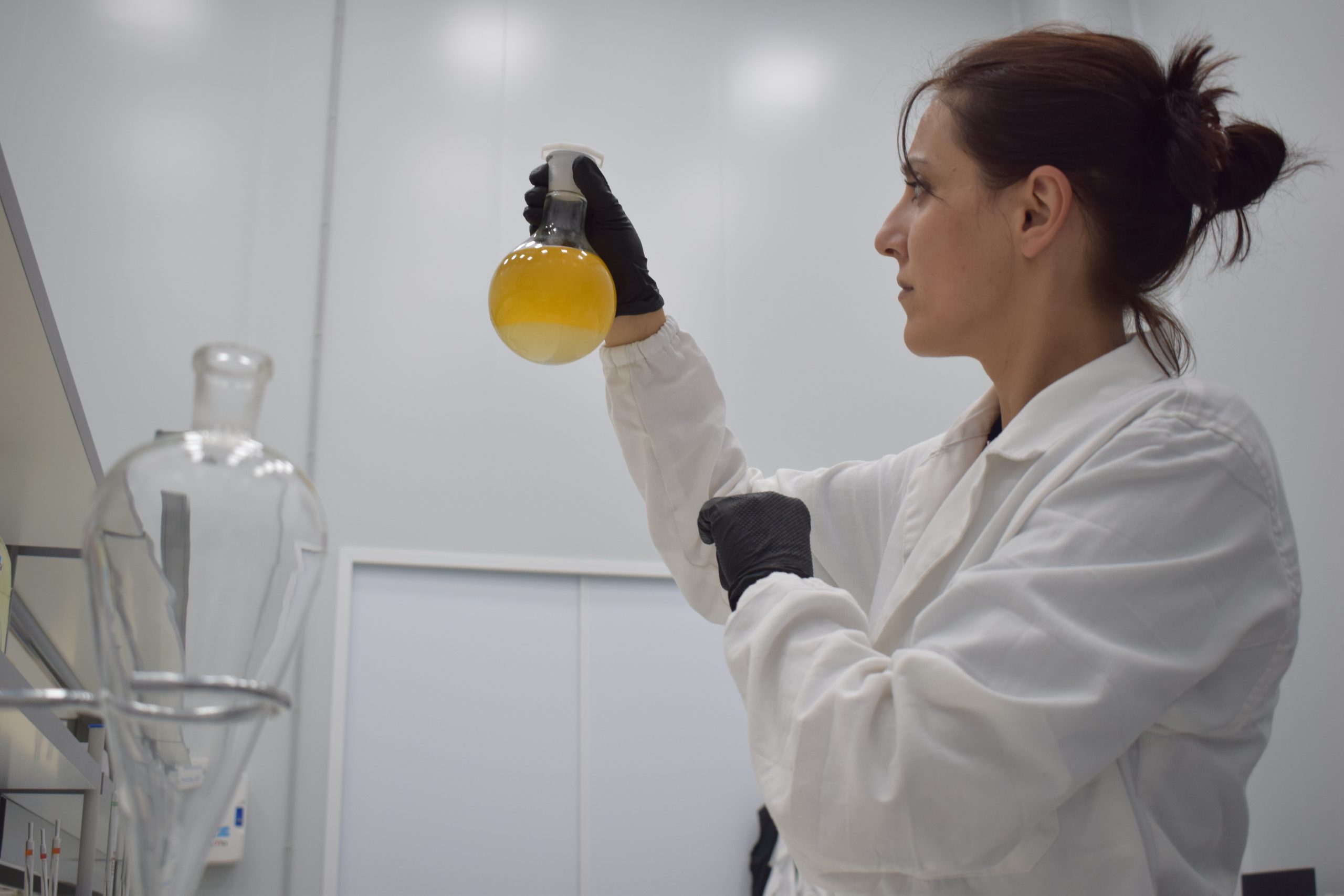
News & Press
Approaching the amazing future of EnXylaScope





28 June 2023
EnXylaScope has delivered outstanding results within the first two years of the project running with significant immediate or potential impact.
Groundbreaking work has been performed and the results obtained facilitate achieving the expected impact and outcomes in a holistic manner over the next reporting periods.
From now on, the activities will be focused on the best performing enzymes discovered during the project that will be produced at higher scale in the optimized production systems to extract and purify the xylan that will be tested in the foreseen consumer products.
EnXylaScope project will soon be finishing the work performed on the discovery of xylan debranching enzymes by SINTEF in Norway. This first work has been an extremely important activity in the project that leads to the possibility of using xylan for consumer products, substituting chemicals. The objective is to reach a list of at least 20 new enzyme candidates from functional screening in the next months.
The production systems have been studied and optimized for the target enzymes by University of Lund (Sweden) and TU Delf (Netherlands), now the future work will be based on the scale-up of enzyme production to pilot (400L scale).
A protocol for xylan extraction and purification from three different feedstocks has been obtained. Now Celignis (Ireland) is working on the selection of 18 different feedstocks and product specific enzyme cocktails using EnXylaScope-discovered enzymes for WIS-xylan production including a public executive summary. This public information will be communicated at Enxylascope webpage. DIVIS (Germany) will continue working at the software tool that has been developing during the first years of the project, allowing the design of feedstock and product-specific enzyme cocktails.
A white paper will be published by the end of the project and publicly available about the use of a software tool for enzymatic cocktail design.
This effort will lead to an optimized sequential process for conversion of WS-xylan to WIS-xylan and then to Xyl-Phe and Xyl-Phe-FA including public executive summary that will be also published at the project webpage.
With the WIS-xylan produced and their derivatives, the validation partners will work to assess the functionality of the new raw material produced for the formulation of new products.
For example, FermentationExperts (Denmark) will study the performance of the enzymatically modified xylans as binder, prebiotic, or as anti-inflammatory agent. Another validation partner, Kerry (Ireland) is starting their work on the potential use of EnXylaScope enzymes in functional food and nutraceuticals markets as processing aids and ingredients. Finally, SEPPIC (France) is also working on the usability of EnXylaScope xylans in the targeted applications (Formulation of 2 cosmetic and 2 personal care products) with further development needs identified.
METGEN (Finland) will produce large-scale enzyme batches by the end of the project and will study the feasibility of the commercial scale production and purification of the EnXylaScope enzymes.
The preliminary safety and toxicology report on EnXylaScope xylans for cosmetic and personal care products will be prepared by RISE (Sweden) as well the sensory evaluation for the formulations developed.
To produce greener consumer products and to support the competitiveness of the European bio-based technology industry, the economic, environmental and social assessment is of outmost importance and this work is being leaded by IFEU (Germany), that will be continuing capturing data from all the partners to finally produce the integrated sustainability assessment.
The work done by LOBA (Portugal), responsible for the communication and dissemination of the project, has been amazing and this partner will continue producing materials such as leaflets, videos, press releases and newsletters in addition to the news published at the webpage and social media, making EnXylaScope visible to the world.
Last but not least, AITIIP (Spain) will continue working on the exploitation routes for Enxylascope products and also coordinating the synergies and exchange of knowledge between similar ongoing European projects working on innovative enzymes and environment. The policy working group of the “Cluster for greener enzymes”, created between the four projects funded under the same topic as EnXylaScope, have been working in joint policy briefs and this work will continue to assure a bigger impact, even beyond the duration of the project.








